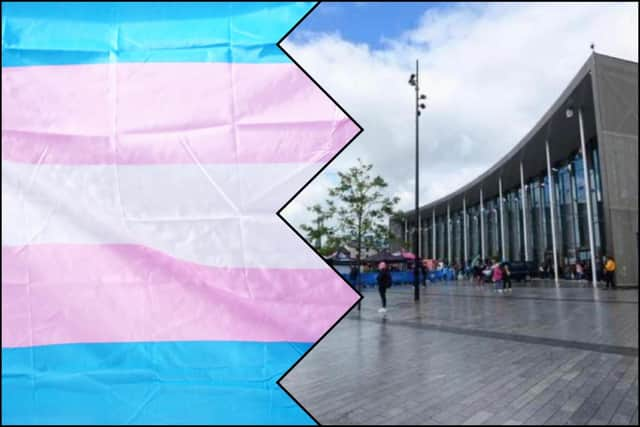UCLan's Journalism department launches controversial guidance to aid reporting on transgender defendants
and live on Freeview channel 276
The document received backlash from some Prestonians, who branded it “transphobic” online, and it has since been taken off the UCLan wesbite.
According to HoldTheFrontPage, the university produced the guidelines in order to help journalists “navigate between their legal and ethical obligations” when covering hearings involving transgender defendants.
Advertisement
Hide AdAdvertisement
Hide AdTo produce the guidance, UCLan researchers Dr Amy Binns and Sophie Arnold reviewed 138 reports of court cases involving 39 transgender defendants and found they were “often confused and unclear”.


Researchers said fears over defendants being “misgendered” or “deadnamed” (referring to transgender people by their pre-transition name, or not referring to defendants’ transitional status), meant some reports referred to defendants by their preferred gender only.
They noted if a defendant’s previous name is not included, it “could prevent victims of any previous crimes or witnesses from coming forward”.
The guidance therefore encouraged journalists to use both birth and post-transition names, particularly in sex offence cases.
Advertisement
Hide AdAdvertisement
Hide AdIt also urged reporters to avoid using definitive words such as “woman” without caveat, and to report all quotes accurately even if different speakers use different pronouns throughout the hearing.
Other recommendations included for reporters to provide readers with information on an official name change, medical treatment and time of transition, as well as to clarify the biological sex of the defendant high up in the story.
The guidance stated: “Types of crime strongly correlate with biological sex. These differences remain even after transition.
“Public understanding of crime, particularly violent and sexual offences, will be corroded if a defendant’s sex is cloaked in euphemisms, or buried in a final paragraph, or if gender is conflated with sex.”
Advertisement
Hide AdAdvertisement
Hide AdSeven trans rights groups were invited to take part in the research but did not respond.
Danni, an openly trans UCLan graduate, who works across Lancashire to help LGBTQ people, said: “UClan’s actions are utterly against what numerous people have been trying to achieve in creating a solid, supportive and inclusive LGBTQ+ scene for Preston and Lancashire.
“The publishing of the journalistic guidance has confused, angered and upset the LGBTQ+ populous of Preston. It comes a day after there were protests against homophobia in New Longton.
“The journalists who would use this guidance are at risk of further breaking existing laws. It is grossly irresponsible and has had a huge detrimental impact to the health and welfare of people across Preston and further afield.
Advertisement
Hide AdAdvertisement
Hide Ad“It suggests that Preston and UCLan is not a welcoming place for Trans people... I would welcome the chance for discussions between those in charge of UCLan and trans members of staff, students and the wider LGBTQ community to pave a way forward.”
A spokesperson for UCLan said: “As soon as we were aware of the article being published it was removed from the university website with immediate effect. We are looking in to the editorial process surrounding the approval and publication of research findings within the University and apologise for any distress or offence this particular article may have caused. As a University, we are committed to supporting, empowering and creating an inclusive community for LGBT+ and we fully recognise the legal standing of a Gender Recognition Certificate under the Gender Recognition Act 2004.”
